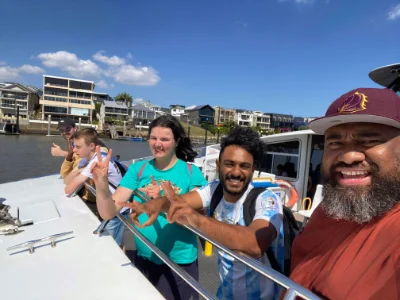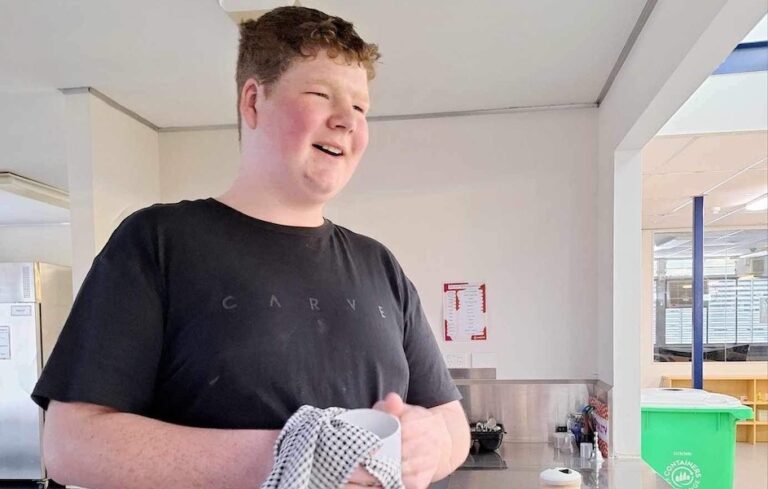How Parents of Disabled Children can support the post-school transition
Leaving school and figuring out what’s next is challenging for many young people but for those with disability, it is even harder. There are many things parents and carers can do to help children through the transition from school to their post school life and make the journey as smooth as possible.
Start Planning Early
Post-school planning should commence in early high school and be directed by your child’s aspirations and goals. There are a number of workplace-style learning activities available at school to help students develop a realistic understanding of their post school options. There are also many government and NDIS school age programs that can help with the move from school to work, work experience, volunteering and tailored disability programs. Talk to your child about their expectations of these experiences and how they can best manage in a new environment.
Although it’s not possible for all families to take time out, it could also benefit your child to plan to be more available to support them emotionally and physically during their post school transition by taking work leave, long service leave or reducing work hours.
Consider Your Child’s Interests and Strengths
Consider your child’s interests and strengths, and how best to support and build on these strengths to help them achieve their potential.
For instance, if your child wants to develop more independence to one day move out of home, a NDIS provider with capacity building programs to develop daily life skills may be a good option. If your child has a talent or interest in a particular area, perhaps volunteer work or work experience in that field could be worth pursuing. If developing and nurturing long term friendships is a key goal, a community access program may be just the ticket!
This child-centred approach will not only help identify suitable post-school options, it will also help your child feel that they are involved and can contribute to the transition process.
Investigate The Options
There are numerous activities, programs, employment, and work experience options available to young people with disabilities. These include:

- Further study (either mainstream or disability programs)
- Paid Work
- Work Experience or volunteer work
- Workplace Training
- Apprenticeships or traineeships
- Supported Employment
- Respite and recreation programs
- Moving out of home
Take the time to investigate and consider all appropriate options available and keep an open mind. No one service may provide everything you are looking for; ideally, you want to connect with a range of providers, and select the provider/s who can create a varied and rich transition and post-school program for your child.
Develop a Collaborative Partnership
Build a team around your child!
Children are more likely to experience successful transitions when families, educators, teachers and school and service leaders and other professionals such as allied health work together.
Participate in transition assessments and meetings, focus the planning on your child and family needs, provide all relevant information to help everyone to make the best decisions, and support your child to be a ‘self-advocate’.
Participate in Rites of Passage
The rites of passage into adulthood are just as important for young people with a disability to celebrate their achievements and experience the joy of being in the limelight. Attending formals, graduation ceremonies, photos and parties are all important milestones! It’s also a time for families and carers to reflect on how far their young person has come, and how important your role was, and is, in making this happen.
NDIS Plan Reassessment
Not everyone has access to NDIS support, but if your child does, you will likely need to submit a plan re-assessment due to the change of situation with their post-school transition.
For instance, if your child is keen to look for employment, you will want to apply for School Leaver Employment Support (SLES). For those interested in further study, tertiary providers have a Disability Inclusion Officers who can undertake an assessment to determine study supports your child may require. If your child would like to move out of home, will they need NDIS Specialist Disability Accommodation (SDA) and supported Independent Living (SIL) services funding?
It’s important to be aware of your NDIS funding options for the transition and post school years and understand what cannot be funded so you can potentially access supports through other channels.
Choosing a Support Service
Loving and supportive service providers like swara are key to a successful post-school transition.
When meeting with potential service providers, be honest about your child’s support needs. Focus on the program activities that your child may like to do, is good at, and what you and they expect from the program. Ensure that the service is willing to have regular meetings to review your child’s program and progress and have constructive conversations around any challenges that may occur.
Practical considerations may also include whether there are suitable public transport options, a paid transport option, or if you can arrange drop offs and pick-ups.
On a more subjective level, do you get a good feeling when you visit the service? Are they welcoming and looking forward to including your child in their programs? Will the service provide a personalised program to ensure your child can achieve their capacity building goals?
Does the service offer meaningful activities that will engage your child and develop their skills, and can you visualise your child being happy in this service?? Parents know their children best, and you are likely to have a good ‘gut instinct’ as to whether a service will be right for your child.
In Summary
To maximise your child’s opportunities and to ensure a successful post-school transition, start planning early, consider your child’s strengths and interests, collaborate with your child’s extended ‘team’ and explore your options. This will ensure your young person is more confident and certain about their future.
swara is a disability service provider based in Woolloongabba, Brisbane. We believe in celebrating who you are so you can achieve to the best of your abilities, determine your future and make a positive impact on the world. We offer joy filled and fun school transition programs, and school holidays activity programs to guide post-school options over the coming years. Contact us today to learn more.






